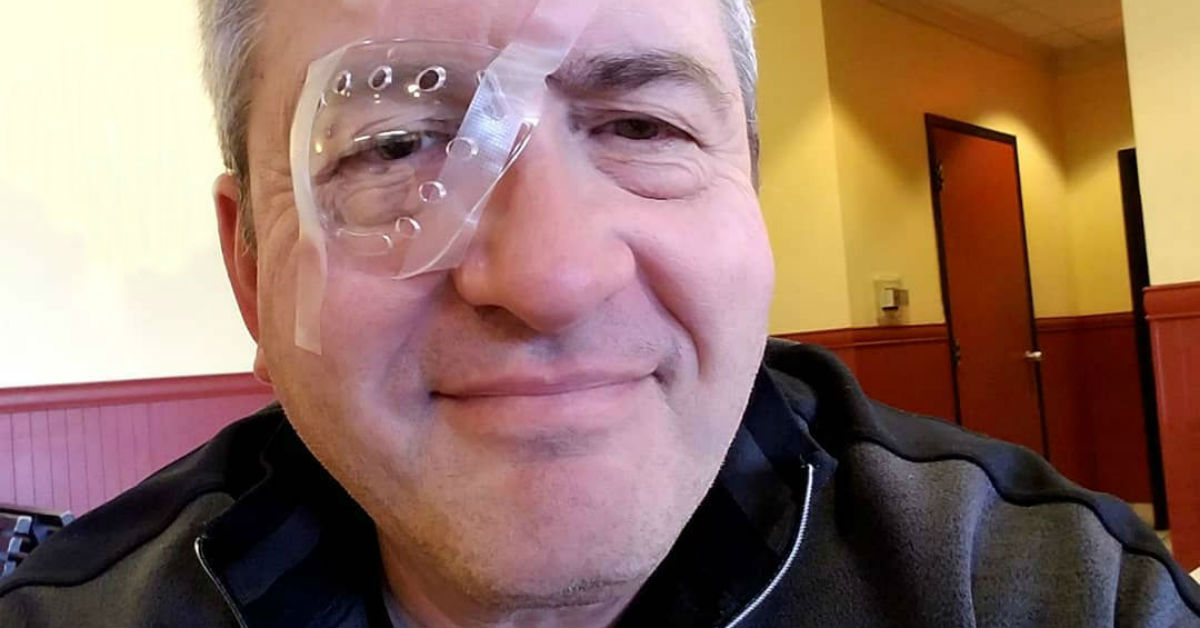
June is Cataract Awareness Month. My cataract awareness once left a bit to be desired.
When playing over-50 softball became a struggle two summers ago, I never thought it was my vision. Figured it was just a matter of getting older. But as it turned out, my left eye – the one closest to the pitcher – was becoming increasingly clouded.
After my annual eye exam at BayCare Clinic Eye Specialists in late 2016, Dr. Dongmei Chen said I’d need to be watched for cataracts. She’s an ophthalmologist who specializes in treating cataracts.
Then came that tough summer of softball. Truth be told, reading road signs was getting harder, too.
By the time I had my next eye exam in early 2018, the vision in my left eye had degraded so much that it didn’t take long for Dr. Jacob Kosizek – an optometrist and one of Dr. Chen’s colleagues – to tell me, “OK, now you need cataract surgery.”
Of course, I mentioned that on Facebook. Family and friends immediately posted reassurance.
“One of the best things I have ever done,” one friend said. “No big deal,” another said. “Great vision after,” my brother said. “Cataract surgery tops the patient satisfaction list,” said a friend whose husband shouted out the road signs he couldn’t previously read as she drove him home from surgery.
They were right. Cataract surgery was no big deal. Great vision followed.
Dr. Chen removed the clouded lens from my left eye and implanted a new lens. Two weeks later, she did the same for my right eye. It’s outpatient surgery. It doesn’t take long and there’s no pain. Eye drops come with preparing for and recovering from surgery, but you get the hang of those.
After each surgery, I couldn’t drive for the next day or so, but my vision was almost immediately back to normal. For the next week, there was no running, no swimming, no heavy lifting – nothing that might put stress on the eye. I also wore a protective plastic shield over the eye at night for a week. (Yes, a shield. Can’t say I looked like Nick Fury, but you get the idea.)
That was it.
Six weeks after the first surgery, Dr. Chen pronounced me good to go, with corrected vision in the 20/15 to 20/20 range. I was nearsighted for years before cataract surgery, then somewhat less nearsighted after, so I still wear glasses. But I no longer need glasses to read books or to work on a computer.
Bottom line? Know the symptoms of cataracts: Glasses that no longer seem to be getting the job done, fogged or blurred vision, colors seeming dull or muted, sunlight seeming too bright, poor night vision or halos appearing around lights.
Have annual eye exams to diagnose or keep watch on cataracts. Left untreated, cataracts can lead to disabling vision loss.